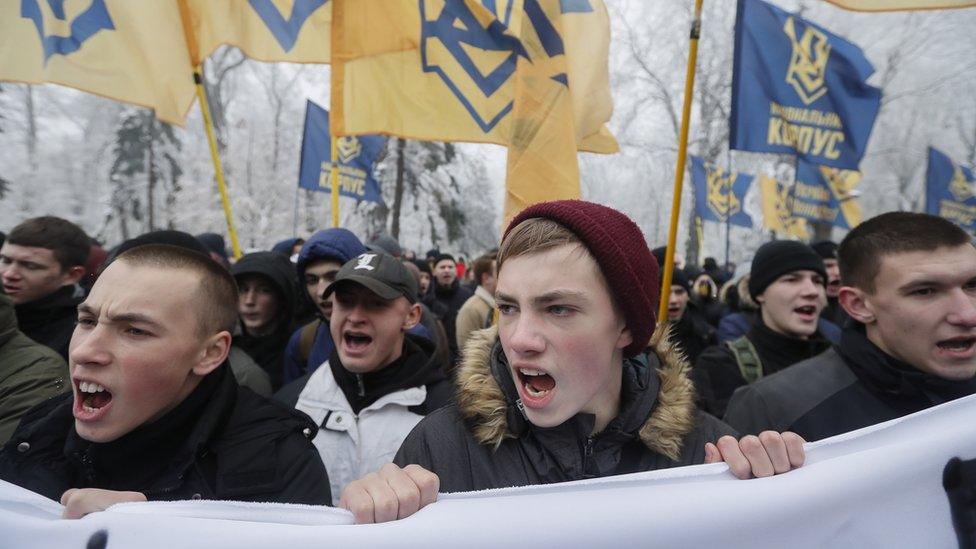Ukraine-Russia clash: Nato's dilemma in the Black Sea
- Published
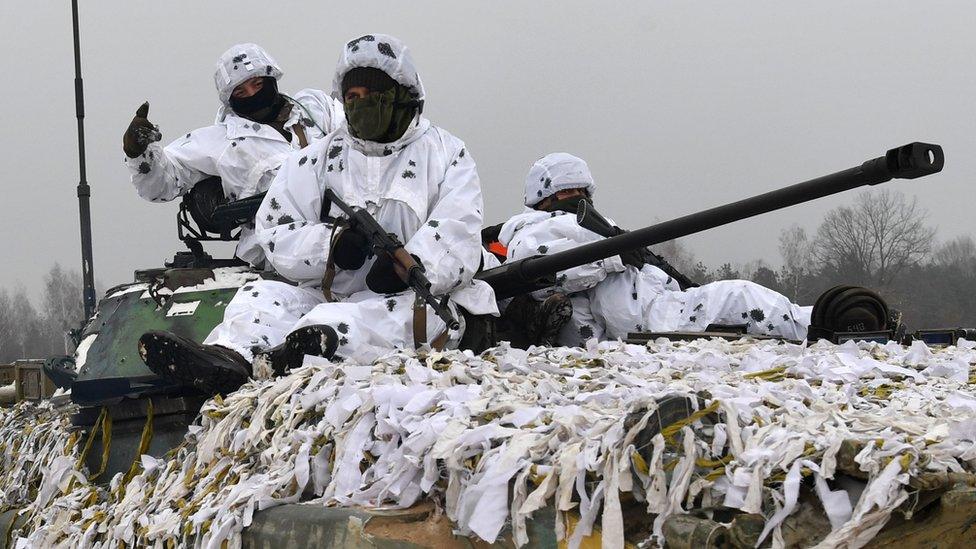
Ukrainian forces took part in a tactical exercise near the Russian border on Monday
Does crisis beckon in the Black Sea? Could Russia and Nato even come to blows?
That - at least for now - is probably unlikely. But the recent seizure of two Ukrainian gunboats and a tug in the approaches to the Kerch Strait, by vessels of the Russian Border Guard, has inevitably brought security in the Black Sea to the forefront of Nato's agenda at their meeting in Brussels on Tuesday.
The Black Sea has long had strategic significance.
It was, after all, the theatre for a major conflict between the Western powers France and Great Britain and Imperial Russia in the mid-19th Century. During the Cold War, it was the Soviet Union's shortest route to Iran and the Middle East. Turkey - a Nato ally - stood astride the Black Sea's southern exit to the Mediterranean, facing Russia across the Black Sea to its the north.
For the Russians this was always seen as their "back yard". And the end of the Cold War and the break-up of the Soviet Union greatly complicated relationships.
Incursion, or deterrence?
Russia has engaged in armed conflict against two independent states that were formerly part of the Soviet Union - Georgia and Ukraine. It has annexed Ukrainian territory - Crimea - and continues to support armed rebels in eastern Ukraine. And it backs separatist enclaves that have broken away from the Georgian government.
Russia is alarmed at what it sees as Nato's growing incursion into the region. Three nearby states, Turkey, Romania and Bulgaria, are members of the alliance. Nato conducts air policing operations out of Romania, helping them to defend their territory by intercepting Russian jets approaching their air space.
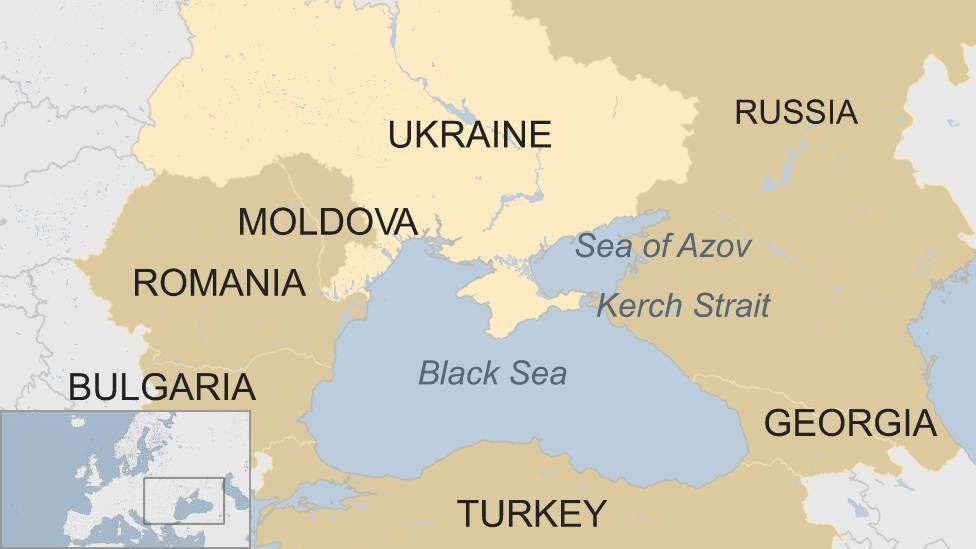
Similarly, Nato warships have stepped up patrols in the Black Sea. Romania is hosting a US-built ballistic missile defence site. And Nato - along with individual Alliance members - is developing military ties with its partner countries Georgia and Ukraine.
Viewed from the Nato headquarters in Brussels, this is simply helping to provide stability and a measure of deterrence in the face of a more assertive Russia. Ukraine, for example, is eager to ensure that the Sea of Azov does not become a Russian-controlled lake. And Nato as a whole is intent on challenging Russian dominance of the Black Sea itself.
However, viewed from Moscow, this is all part of what they see as Nato's broadening land grab; its desire to push the borders of the Alliance ever closer to Russia. And given that this is an area of historic significance for successive Russian regimes, the stakes are very high indeed.
Russia remains unmoved
Nato has a problem.
On the one hand, its member governments' rhetoric calls for stability and de-escalation while they take steps - such as military exercises and economic sanctions - that the Russians are bound to see as provocative. Judging the balance between deterrence and provocation is not easy, especially when pressure alone is often unlikely to change Russia's behaviour.
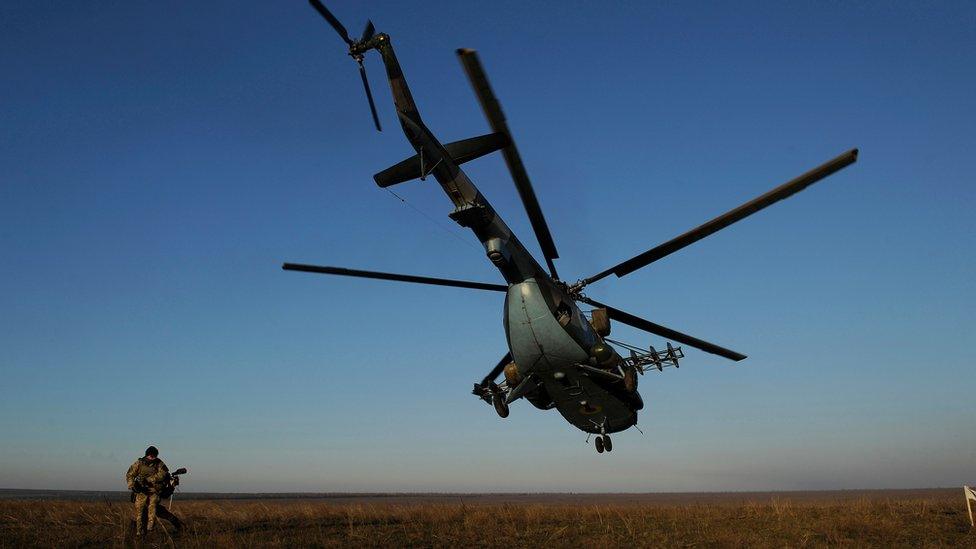
Military drills near the port city of Mariupol took place last week
Take the Ukraine crisis for example. Sanctions show no sign of changing President Putin's mind, nor are they likely to secure the return of Crimea any time soon. Russia appears willing to accept the pain of sanctions because its interests in the "near-abroad" matter more.
This calculus makes Nato's response to the latest crisis between Russia and Ukraine more difficult. Analysts have called for a variety of measures, from the deployment of Nato vessels in the Sea of Azov - which would probably be illegal since it is an inland sea not an international waterway, and impractical because Russia could easily seal the Kerch Strait; to stepped-up economic sanctions; or even efforts to compensate Ukraine for the economic losses it is suffering from what is effectively a semi-blockade of its ports.

There will be those in Ukraine and among its more strident supporters in the US who see this as adding to the case for stepping up arms supplies to Kiev. While Nato countries do lots of training for the Ukrainian military, they have largely baulked at providing lethal weaponry. The Trump administration has supplied a limited number of Javelin anti-tank weapons to redress a significant defensive shortcoming in Ukraine's ground forces. But some experts have suggested, for example, that Kiev should be given shore-based anti-shipping missiles to help even up the naval balance in these enclosed waters.
There is no perfect solution to this strategic stand-off separate from a more fundamental recasting of the relationship between Russia and the West. The immediate task is to ensure that things do not get worse.
War is ever-changing
And this raises another fundamental problem for Nato. Warfare is changing.
Indeed, the once-clear boundary between war and peace is dissolving. We hear a lot about military demonstrations, exercises, cyber attacks and information operations. Traditionally, these have been seen as a prelude to conflict.
But what if they are actually the war itself, as one senior US commander recently asked?
In other words, you no longer have to risk full-scale warfare; you just use a variety of tools to apply pressure to achieve the same ends. In this light, Russia is already having some success against Ukraine.
It has seized Crimea and shows no sign of relinquishing it. It is exacting an economic cost from Kiev by interfering with shipping in the Sea of Azov.
It has, as it might argue, weakened the Ukrainian president at a time when he faces a difficult re-election campaign, by seizing three vessels and their crews. All at a price that Moscow seems willing to pay.
This, then, is Nato's dilemma: how does it reassure friends and allies in the Black Sea region without simply making matters worse?
- Published30 November 2018
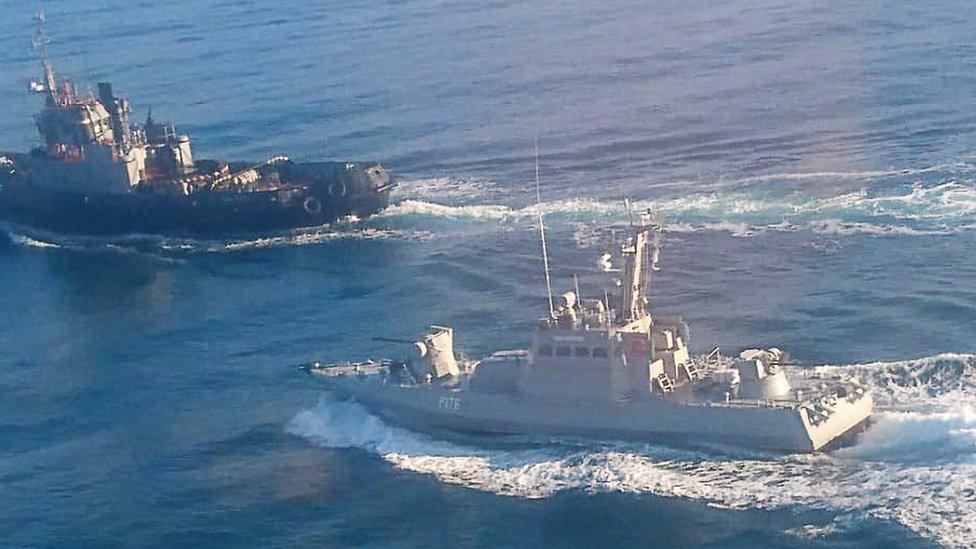
- Published27 January
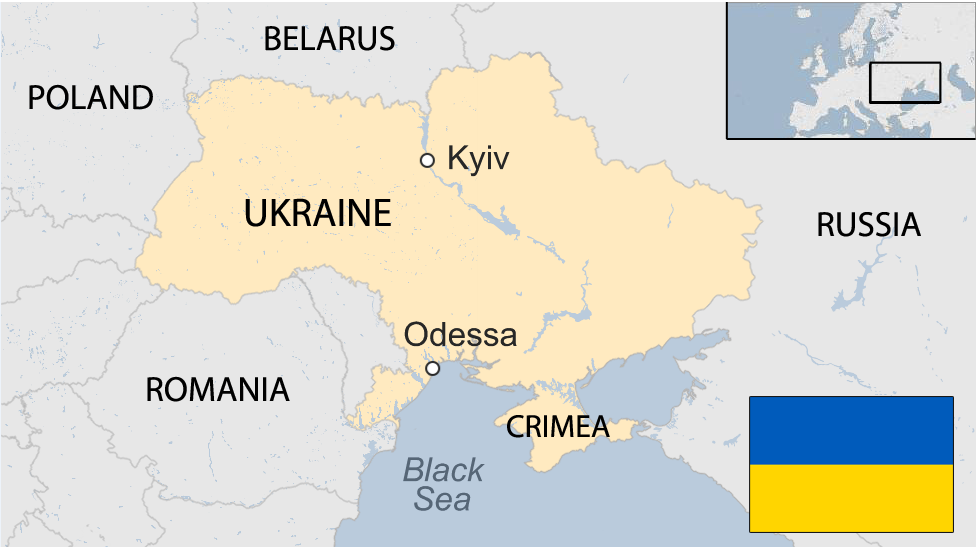
- Published29 November 2018
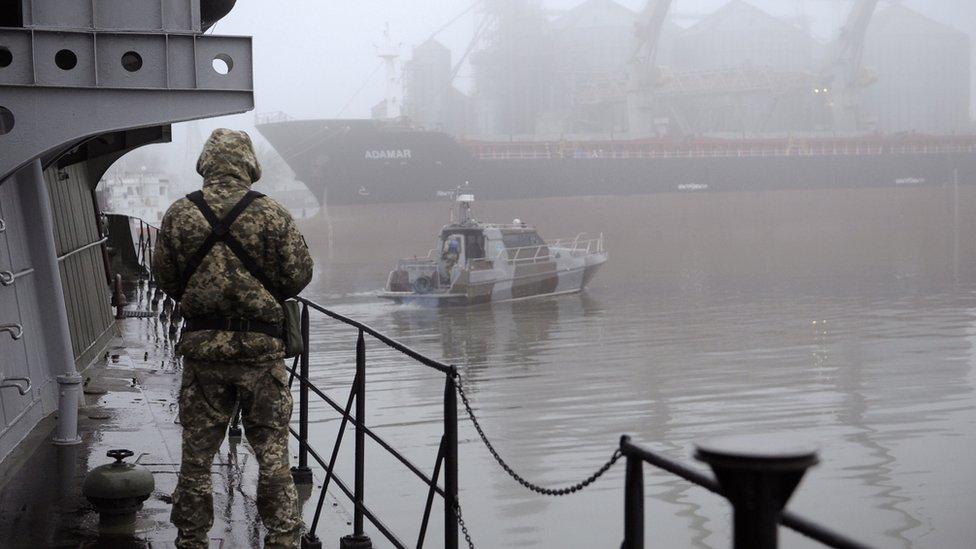
- Published27 November 2018
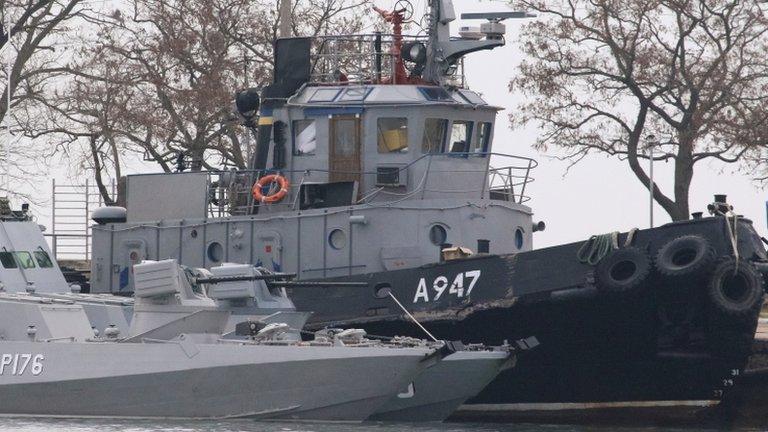
- Published26 November 2018
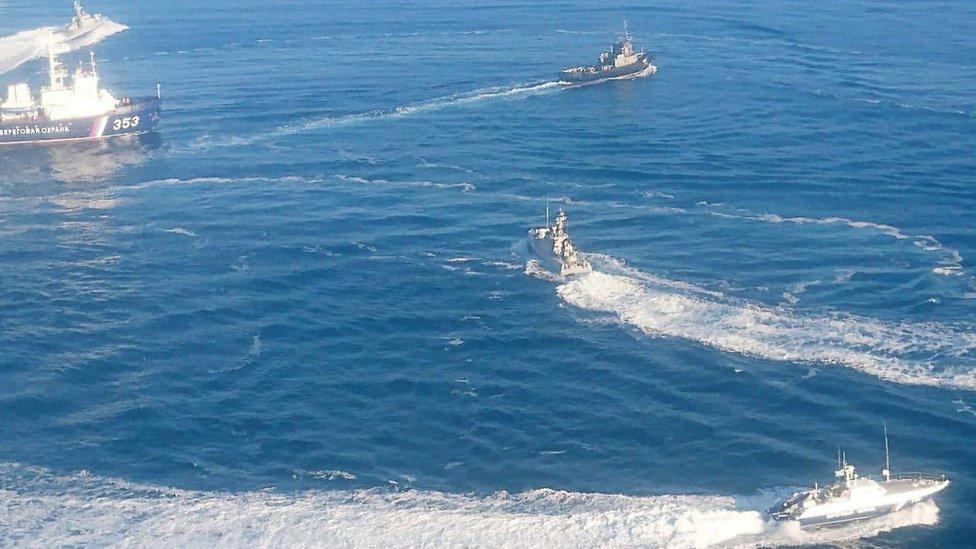
- Published25 November 2018
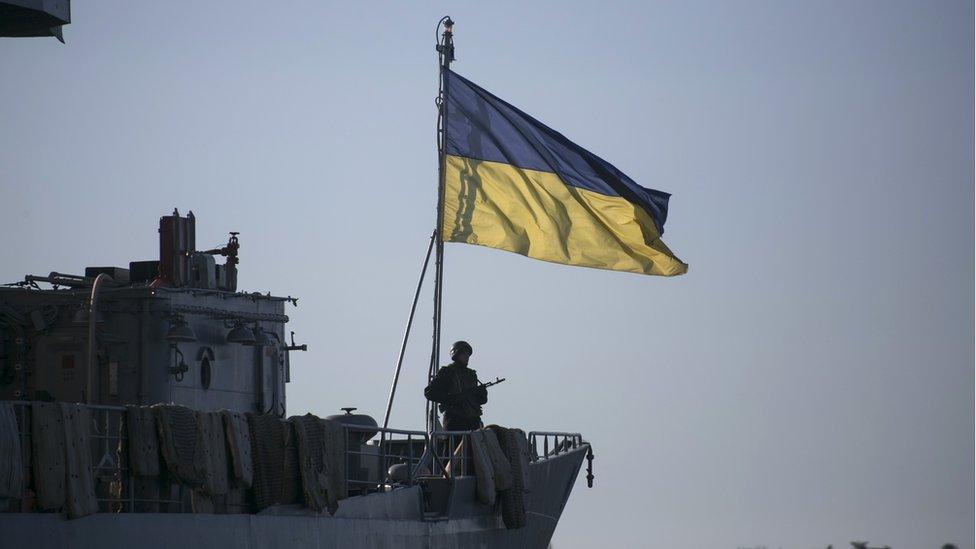
- Published27 November 2018
